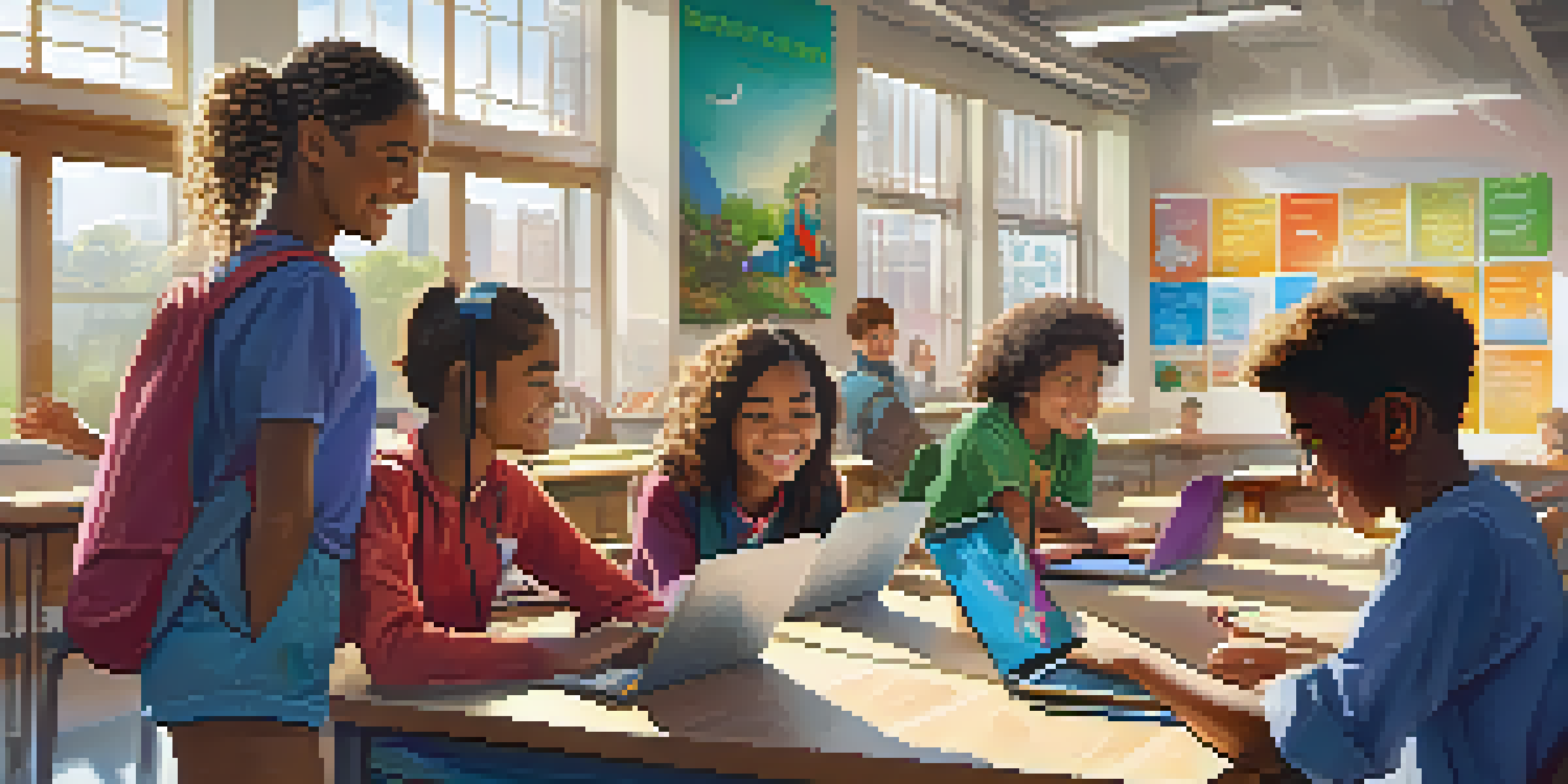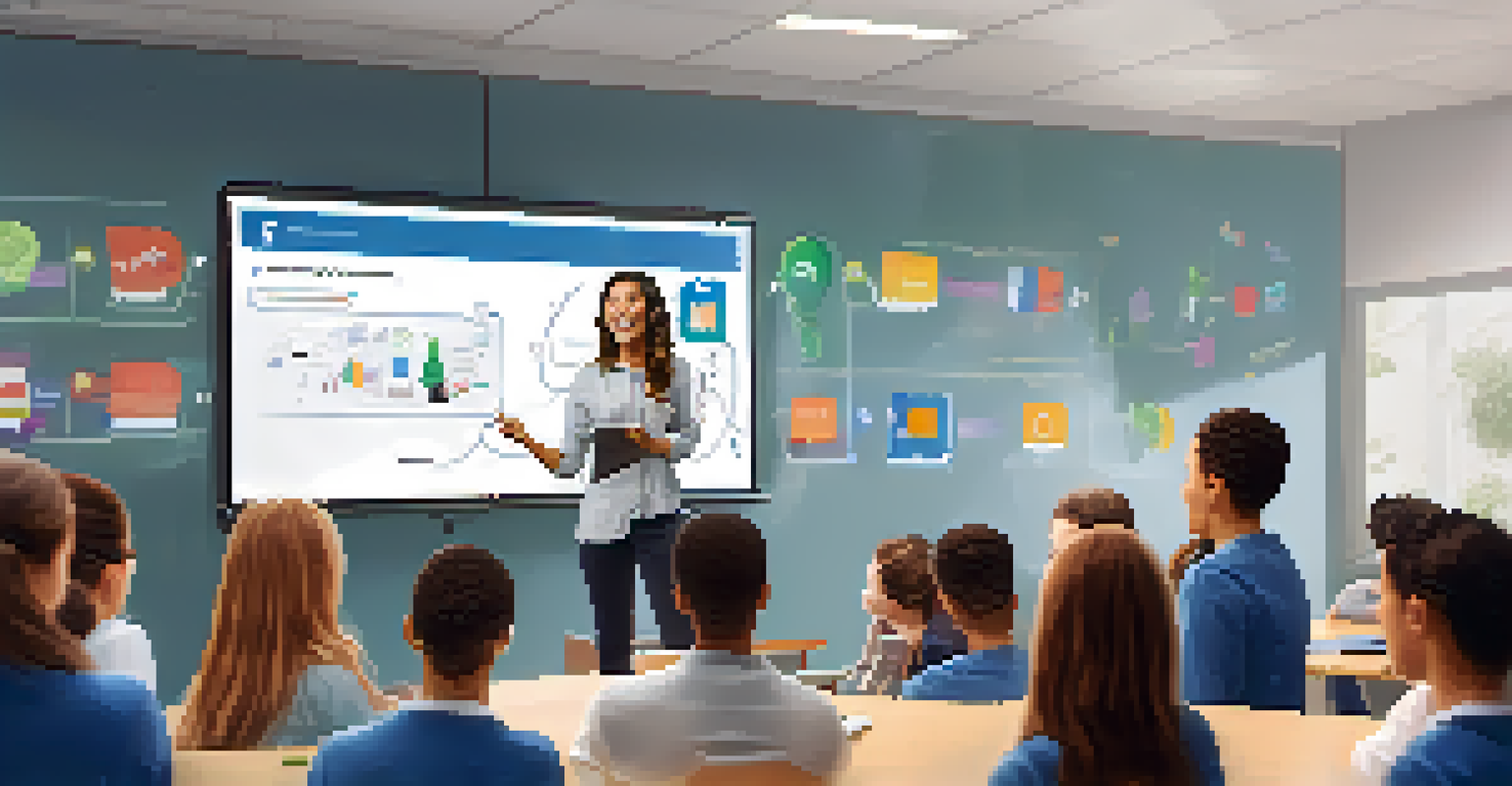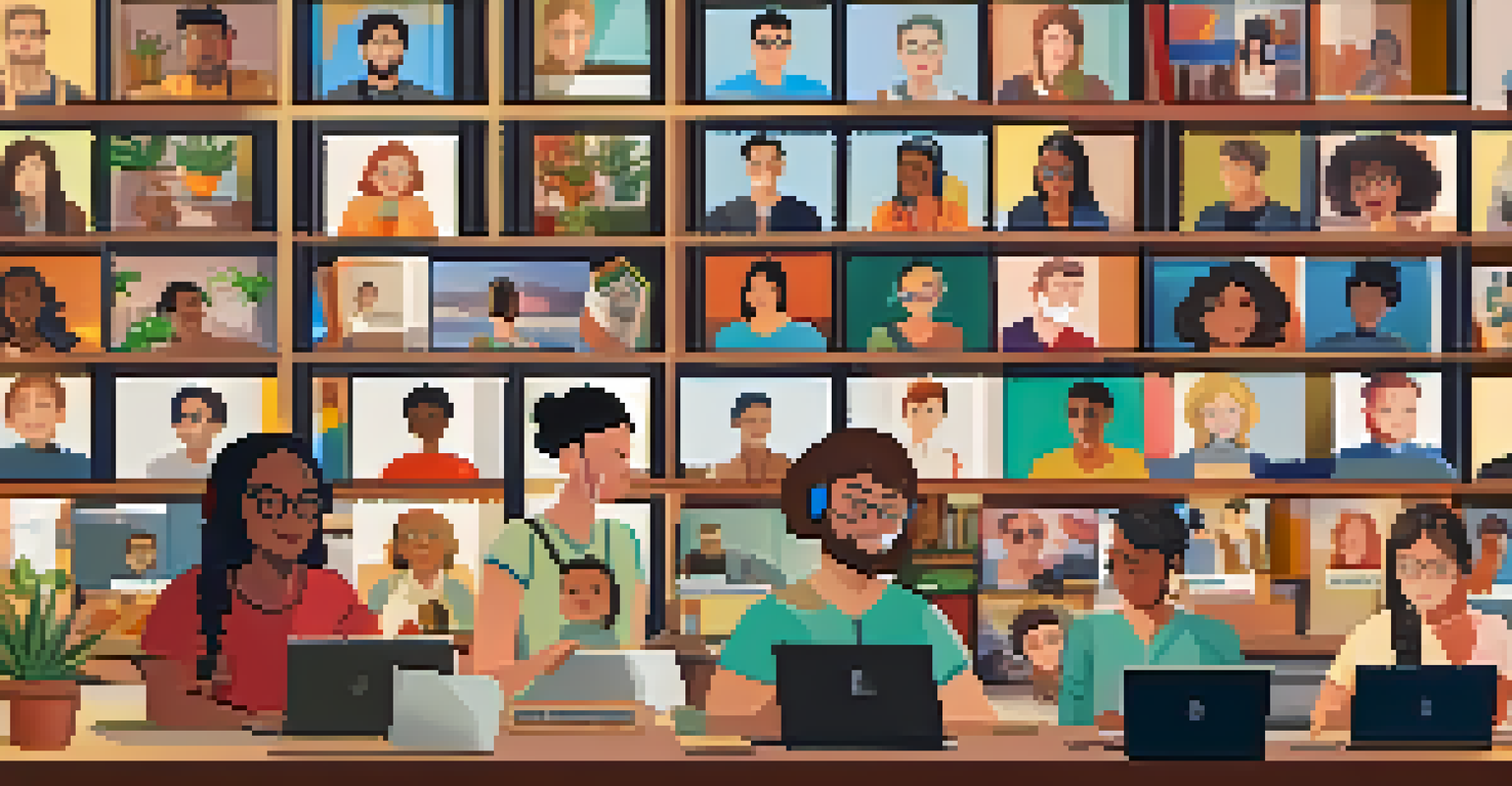Social Media as a Catalyst for Change in Educational Reforms

The Rise of Social Media in Education
In the past decade, social media has transformed the educational landscape. Platforms like Twitter, Facebook, and Instagram have become powerful tools for teachers and students alike. They offer a space for sharing resources, ideas, and experiences, breaking down traditional barriers to communication.
The internet is becoming the town square for the global village of tomorrow.
Educators can connect with peers globally, gaining insights from diverse teaching methods and curriculums. This exchange of information fosters innovation in teaching practices and promotes lifelong learning among educators. As a result, students benefit from more dynamic and engaging learning environments.
Moreover, social media encourages collaboration beyond the classroom. Students can share their projects, seek feedback, and learn from each other's experiences, creating a vibrant community of learners. This collaborative spirit is essential for driving educational reform and improving student outcomes.
Amplifying Student Voices and Advocacy
Social media provides a platform for students to voice their opinions on educational issues. Whether it's advocating for better resources or highlighting mental health concerns, these platforms amplify their voices. This active participation fosters a sense of ownership over their educational experiences.

For instance, when students organize campaigns online, they can attract significant attention, influencing policymakers and school administrations. Hashtags like #StudentVoices and #EdChat help rally support for various causes, demonstrating the power of collective action. It's empowering to see young people take the lead in shaping their educational environments.
Social Media Connects Educators Globally
Platforms like Twitter and Facebook enable teachers to share resources and insights, fostering innovation in educational practices.
Furthermore, these discussions often extend beyond the classroom, encouraging community involvement. Parents and educators can engage in dialogue, leading to collaborative solutions that address pressing educational challenges. This synergy is vital for creating meaningful change in educational systems.
Access to Information and Resources
One of the most significant impacts of social media on education is the democratization of information. Students and educators can access a wealth of learning resources at their fingertips, breaking down the barriers of traditional education. This accessibility empowers learners to take charge of their education, exploring topics that resonate with them.
Education is the most powerful weapon which you can use to change the world.
Additionally, educators can share their best practices and innovative teaching strategies through blogs, videos, and online forums. This sharing of resources helps create a culture of continuous improvement and professional development within the education community. As a result, teachers are better equipped to adapt their methods to meet the diverse needs of their students.
Moreover, social media platforms often host webinars and live discussions featuring experts in various fields. These events provide valuable insights and foster a culture of curiosity and exploration, encouraging both students and educators to stay informed about the latest trends in education.
Fostering Global Connections and Learning
Social media transcends geographical boundaries, enabling students to connect with peers from around the world. These global connections enrich the educational experience by exposing students to different cultures, perspectives, and ideas. Such interactions can lead to collaborative projects that cultivate a deeper understanding of global issues.
For example, classrooms can engage in virtual exchange programs where students work together on projects, sharing their findings online. This kind of collaboration not only enhances learning but also prepares students for a globalized workforce. It equips them with the skills necessary to navigate diverse environments and communicate effectively across cultures.
Students Amplify Their Voices Online
Social media empowers students to advocate for educational changes, rallying support for issues that matter to them.
Additionally, these global connections can inspire social change. By sharing stories and experiences, students can raise awareness about critical issues affecting their communities and the world. This interconnectedness fosters empathy and encourages young people to become advocates for positive change.
Challenges of Social Media in Education
While the benefits of social media in education are numerous, there are also challenges that educators and students must navigate. Issues such as misinformation, cyberbullying, and distraction can undermine the positive impact of these platforms. It's crucial to address these challenges head-on to create a safe and productive online environment.
Educators need to implement digital literacy programs that teach students how to discern credible information from falsehoods. This skill is essential in today's information-driven society, where the ability to critically evaluate sources can greatly influence learning outcomes. Schools should also establish clear guidelines for appropriate online behavior to mitigate the risks of cyberbullying.
In addressing these challenges, schools can foster a positive culture around social media use. Encouraging open discussions about online behavior and its consequences can empower students to make informed choices. Ultimately, creating a supportive online community is essential for maximizing the benefits of social media in education.
The Role of Educators in Guiding Social Media Use
Educators play a crucial role in harnessing the power of social media for educational reform. By integrating social media into their teaching practices, teachers can enhance engagement and foster a sense of community among students. They can also serve as role models, demonstrating responsible and effective use of these platforms.
Professional development opportunities focused on social media strategies can equip educators with the tools they need to succeed. Workshops and training sessions can help teachers learn how to create meaningful online interactions and leverage social media for collaborative projects. This guidance is essential for ensuring that educators feel confident in using these platforms.
Access to Resources is Democratized
Social media provides students and educators with easy access to a wealth of information and learning resources.
Moreover, educators can facilitate discussions about the impact of social media on learning. By encouraging students to reflect on their online experiences, teachers can help them develop critical thinking skills and better understand the role of social media in their education. This approach fosters a culture of responsible digital citizenship among students.
Looking Ahead: The Future of Social Media in Education
As technology continues to evolve, so too will the role of social media in education. The future holds exciting possibilities for enhancing learning experiences and driving educational reforms. Emerging technologies, such as virtual reality and artificial intelligence, may soon integrate with social media, creating immersive learning environments.
Additionally, as more educators embrace social media, we can expect to see an increase in innovative teaching practices. Teachers will continue to experiment with new ways to engage students and promote collaboration, leading to more personalized and effective learning experiences. This shift will likely result in improved student outcomes across diverse educational settings.

Ultimately, the potential for social media as a catalyst for change in education is vast. By embracing these platforms thoughtfully and strategically, educators can create dynamic learning environments that prepare students for success in an interconnected world. The journey towards educational reform is ongoing, and social media will undoubtedly play a significant role in shaping its future.